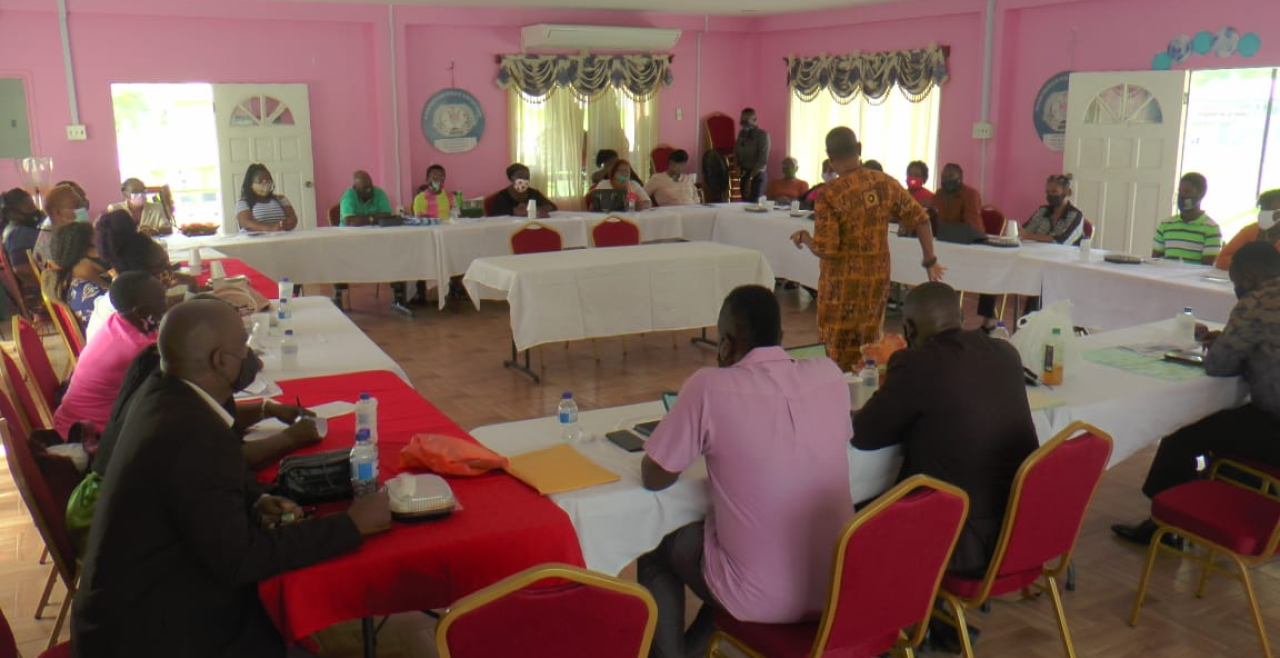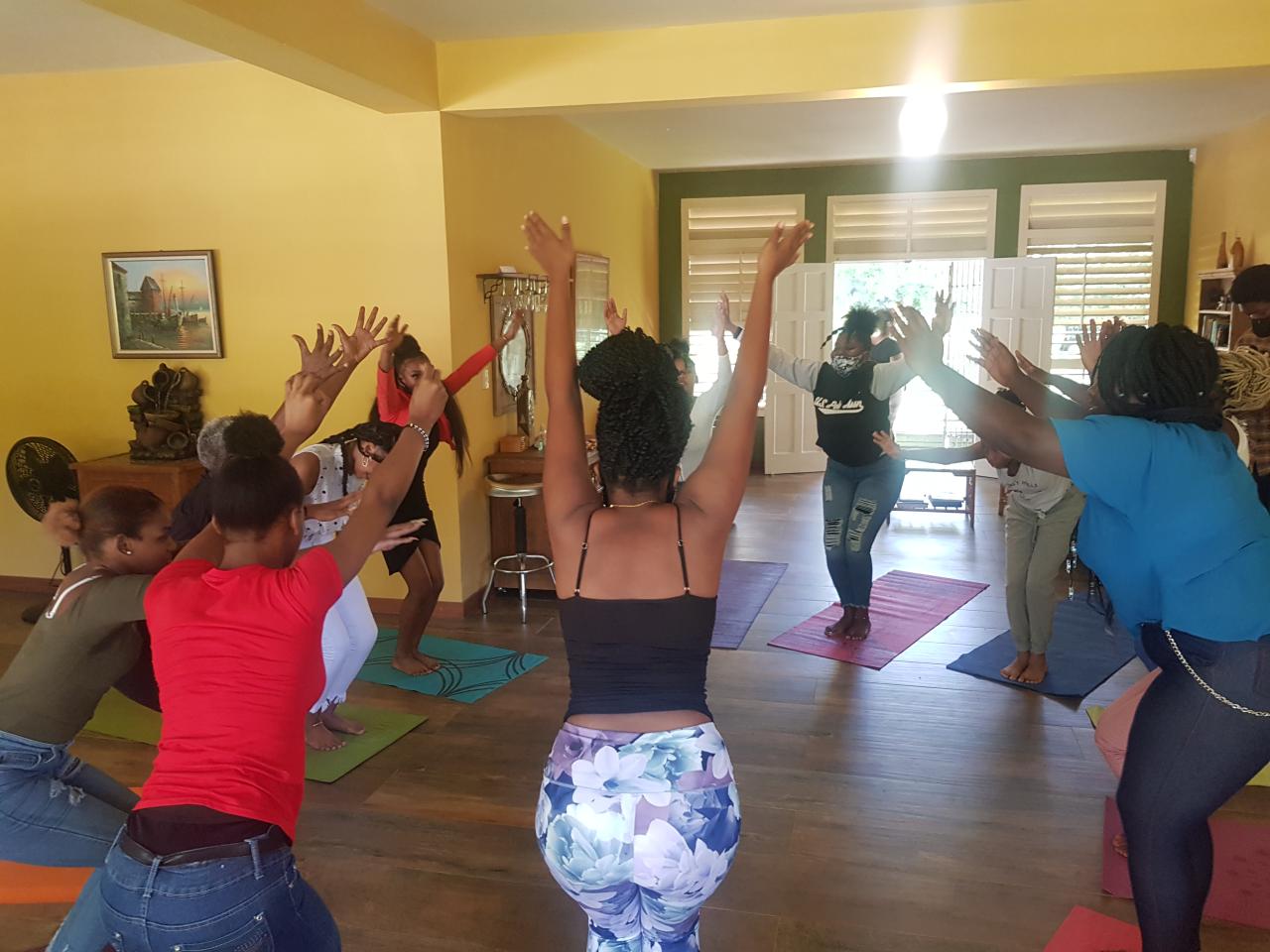‘Taking care of people is who I am’ - addressing violence against elderly women in Tobago

ROXBOROUGH, Tobago - As Trinidad and Tobago navigates a second wave of COVID-19 infections, the Roxborough Police Youth Club is doing everything it can to protect Tobago’s most vulnerable citizens - not just from the virus, but from the “shadow pandemic” of gender-based violence that accompanies it.
The club recently hosted Project P.O.W.E.R. (Protecting Our Women and Elderly Residents), a two-day workshop funded by the Spotlight Initiative to better train those working in care-giving services. Project Manager Jonathan Mc Carter-White said that the programme was designed to address the isolation of older citizens during lockdowns and the violence that can flourish behind closed doors.
"In my experience, elderly women are more vulnerable to violence [than elderly men] because the social disparity between men and women remains, elderly or not," said Mr. Mc Carter-White.
UN data indicates that In 2017, one in six older persons was subjected to abuse. Elderly women in particular face an increased risk of physical and psychological abuse due to discriminatory societal attitudes. They are also more likely to live in poverty and are less likely to have access to legal protection.
"Elderly women are more vulnerable to violence because the social disparity between men and women remains." - P.O.W.E.R. Project Manager Jonathan Mc Carter-White
Bridging the gap between elders and care-givers
A Roxborough Police Youth Club community survey found that while 74.3 per cent of respondents were the sole care-giver for an elderly family member, less than 13 per cent had received any formal training in geriatric care.
In order to address this gap, Gerontologist and former Head of Aging at The Ministry of Social Welfare and Family Services Dr. Jennifer Rouse taught workshop participants about food preparation, first aid and shared techniques for better interpersonal communication.
The workshops also covered gerontology and geriatric care, exercising a compassionate approach to difficult elderly clients, how to identify different forms of elder abuse and ethical principles of care-giving. An exploration on the vagaries of Alzheimer’s Disease and strange behaviours exhibited by some elderly people impacted by the pandemic equipped care-givers with a better understanding of their clients.
"While growing up, I always took care of the elderly,” said workshop participant Julianna Duke, 58. “Taking care of people is who I am.” A care-giver for more than 20 years, she is now employed with the Aging Unit at the Ministry of Social Services, but never received any formal training.
Ms. Duke said that in addition to building her knowledge, the workshops helped affirm her role as care-giver as worthwhile. "Sometimes you feel in the job that people look down on you, like you don't know anything,” she said. “I felt very touched by the speaker and a lot of what she said resonated with me. I left there believing that I am somebody worthy of respect."
The training was well-timed, given the additional stress that COVID-19 has placed on both elderly people and their care-givers can create an environment where violence can thrive.
"The COVID-19 pandemic has impacted both the elderly and the care-givers negatively,” explained Dr. Rouse. “The isolation caused by mandatory social distancing has ushered in depression and loneliness in a significant number of the elderly, while the care-givers have the additional sanitization of their clothing, and constant washing and cleaning of items they use for assisting the elders with their daily activities."
"What I learned is to think critically about my job and how I interact with the people in my care.” - Avril Duke Jerry, Care-giver
Building trust
Avril Duke Jerry, a care-giver of 15 years, also attended the workshops. "What I learned is to think critically about my job and how I interact with the people in my care,” she said. “Now I regularly stop and ask myself, ‘Am I doing this right?’ It was a really edifying experience."
Dr. Rouse says that formal training empowers care-givers to operate more independently and competently, but it also allows them to mentor and share their knowledge with untrained co-workers. This has a direct impact on the comfort and experience of elderly clients, ensuring that elderly women receive the care that they deserve.
The Spotlight Initiative is a global partnership between the European Union and the United Nations to end violence against women and girls. In Trinidad and Tobago, the programme is being implemented in the target communities of Tunapuna/Piarco, Mayaro/Rio Claro and Tobago with a focus on family violence prevention and support services.
By Tracy Chimming Lewis

